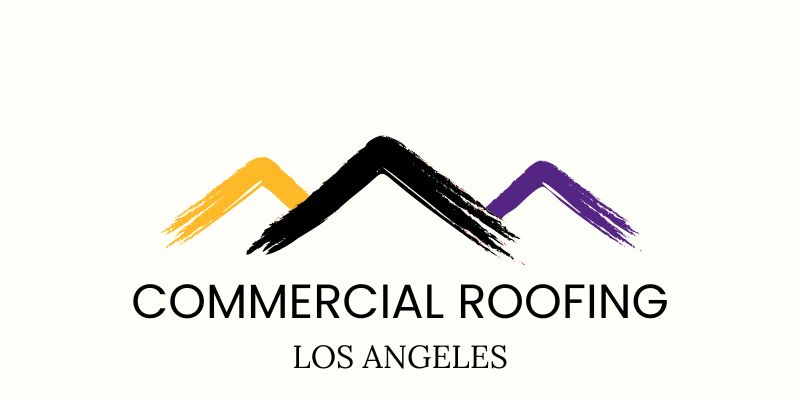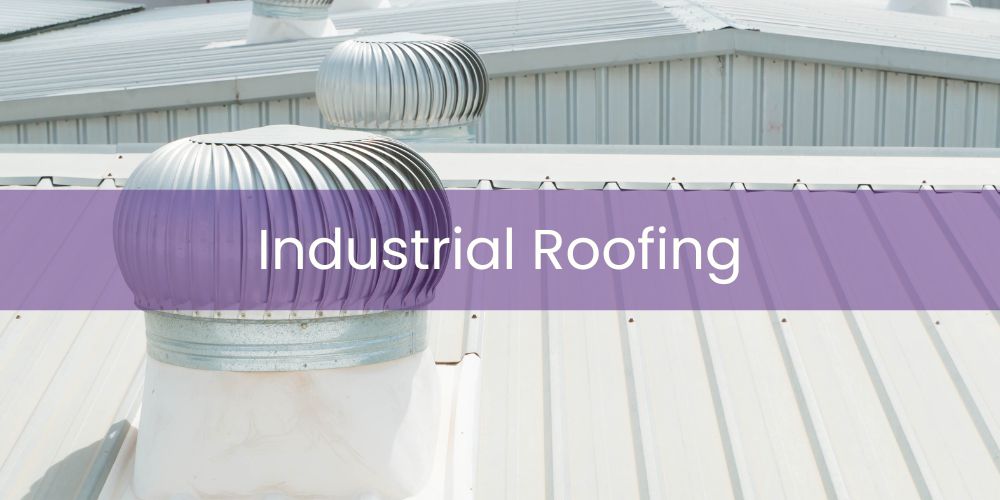Commercial Roofing Los Angeles installs industrial roofing across Los Angeles to control structural loading, block water intrusion, and protect large-scale facilities from heat and mechanical stress. Industrial roofing is the process of designing and installing heavy-duty roofing systems over factories, warehouses, distribution centers, and manufacturing buildings to withstand extreme solar exposure, constant rooftop equipment loads, and continuous vibration from industrial operations. This system allows Commercial Roofing Los Angeles to prevent membrane rupture, stop moisture migration, and preserve insulation and deck integrity beneath the roof surface. Industrial roofing is used on Los Angeles facilities where forklifts, conveyors, HVAC systems, exhaust stacks, and production equipment place continuous mechanical and thermal stress on roof assemblies. By engineering roofs with reinforced membranes, high-density insulation, and secure attachment systems, industrial roofing prevents heat-driven expansion, equipment vibration, and ponding water from creating leak paths. Commercial Roofing Los Angeles installs industrial roofing systems to keep industrial buildings watertight, thermally stable, and structurally protected under Southern California’s operating conditions.
How Does Industrial Roofing Prevent Structural Stress and Water Migration on Los Angeles Facilities?
Los Angeles industrial roofs fail because weight, vibration, and heat concentrate stress into the roofing system. Large HVAC units, exhaust stacks, cooling towers, and production equipment create point loads and vibration zones that flex roof decks and fatigue membranes. At the same time, intense solar exposure causes roof surfaces to expand during the day and contract at night, forcing seams and flashings to open. Once water enters these openings, it spreads beneath the roof, saturating insulation, corroding fasteners, and weakening the structural deck. Commercial Roofing Los Angeles prevents this failure process by installing industrial roofing systems that are engineered to distribute loads, absorb movement, and block water migration. Reinforced membranes, high-density insulation, and mechanically secured attachment patterns stabilize the roof surface so equipment loads and vibration cannot fracture the waterproof layer. Seams, curbs, and penetrations are sealed to eliminate pathways where moisture can travel laterally through the roof assembly. Industrial roofing systems installed by Commercial Roofing Los Angeles are designed to remain stable under constant heat, vibration, and heavy rooftop traffic. This allows the roof to protect insulation, deck materials, and interior operations from moisture damage while maintaining long-term thermal and structural performance across Los Angeles industrial buildings.
What Is Industrial Roofing and How Is It Used in Los Angeles?
Industrial roofing is a class of heavy-duty commercial roofing systems engineered to protect large-scale facilities from sustained mechanical loading, operational vibration, and long-term environmental stress. The term refers to complete roof assemblies—including membranes or metal panels, insulation, attachment systems, and drainage components—designed specifically for factories, warehouses, distribution centers, and manufacturing buildings with continuous rooftop activity. Industrial roofing systems are defined by load tolerance, durability, and system integration rather than by a single material type. In Los Angeles, Commercial Roofing Los Angeles installs industrial roofing on logistics facilities, manufacturing plants, cold storage buildings, and large warehouses where roofs are exposed to sustained radiative stress, thermal cycling, mechanical load, and vibrational stress from equipment and operations. These systems are selected and engineered to accommodate rooftop machinery, service traffic, exhaust systems, and wide roof spans common to Southern California industrial construction. Assemblies are configured to match structural capacity, drainage behavior, and movement patterns specific to high-demand industrial buildings.
The material and system design decisions that allow industrial roofing to perform in Los Angeles create the following performance relationships:
- Reinforced membrane or panel systems → increase load distribution capacity → mechanical loads do not deform the roof surface
- High-density insulation layers → resist compressive stress → equipment weight does not crush thermal layers
- Engineered attachment systems → secure assemblies to structure → wind uplift does not displace roof components
- Durable surface compounds → tolerate vibrational stress → continuous equipment operation does not fatigue materials
- Radiative-resistant materials → withstand sustained solar exposure → heat does not accelerate system degradation
- Redundant waterproofing assemblies → provide fault tolerance → localized damage does not become system-wide failure
- Industrial-grade drainage design → manages hydrological exposure → water does not pond beneath equipment zones
- Movement-accommodating detailing → absorbs thermal cycling → expansion and contraction do not fracture the system
Have a question about an upcoming project?
Where Does Industrial Roofing Absorb Load, Vibration, and Thermal Stress on Los Angeles Facilities?
We install industrial roofing on Los Angeles facilities where mechanical load and vibration concentrate stress at specific roof components rather than distributing evenly across the roof field. Rooftop equipment such as HVAC units, exhaust stacks, cooling towers, and production-related systems impose continuous point loads that flex roof decks and compress insulation. When combined with sustained solar heating, these forces concentrate stress at penetrations, curbs, fastener lines, and transition zones. Industrial roofing assemblies are engineered so reinforced membranes, high-density insulation, and structural attachment systems absorb this stress before it can fracture waterproofing layers or deform the deck. On wide-span industrial buildings, vibration from machinery and service traffic accelerates failure in standard commercial roofing systems. We design industrial roofing so movement is dissipated across the system rather than transferred into seams or flashings. Mechanically secured or reinforced attachment patterns stabilize the membrane or panel surface, while curb and penetration detailing is built to tolerate continuous motion without opening leak paths. This prevents vibration-induced fatigue from allowing water to migrate laterally beneath the roof during rain events. Extended heat exposure further defines industrial roof performance in Los Angeles. Large roof surfaces experience significant daytime expansion and nighttime contraction, which can tear rigid materials apart over time. Industrial roofing systems use materials and detailing that accommodate this movement while maintaining compression resistance under equipment loads. By managing where load, vibration, and thermal movement are absorbed, industrial roofing keeps moisture out of insulation, protects structural decks, and maintains operational continuity for Los Angeles industrial facilities.
In practice, industrial roofing performance on Los Angeles facilities can be reduced to direct cause-and-effect relationships between system design, operational stressors, and building outcomes.
- Reinforced roofing assemblies → concentrated equipment loads → roof decks do not deflect or fracture
- High-density insulation → continuous compressive stress → thermal layers do not collapse
- Engineered attachment patterns → vibration and movement → membranes do not fatigue at fasteners
- Reinforced curb and penetration detailing → mechanical vibration → leak paths do not form
- Thermal-movement-tolerant materials → daily heat cycling → seams do not split or separate
- Industrial drainage layouts → water exposure near equipment → ponding does not force infiltration
When Does Industrial Roofing Become the Correct System Choice for Los Angeles Facilities?
If your Los Angeles facility operates with heavy rooftop equipment, constant vibration, wide roof spans, and prolonged heat exposure, an industrial roofing system may be the correct long-term solution. Under sustained point loads, mechanical movement, and daily thermal expansion, standard commercial roofing assemblies fatigue prematurely, allowing seams, membranes, and deck interfaces to fail under operational stress. Industrial roofing systems are engineered to distribute loads, absorb vibration, and maintain waterproofing integrity across large-scale roofs supporting manufacturing, logistics, and processing operations. We determine whether your facility’s structural demands, rooftop loading, and operating conditions are better served by an industrial-grade roofing system rather than lighter commercial assemblies. If you’re planning a roof replacement, managing frequent failures around equipment zones, or need a system designed to remain stable under Los Angeles industrial operating conditions, industrial roofing may be the appropriate system choice for your facility.

